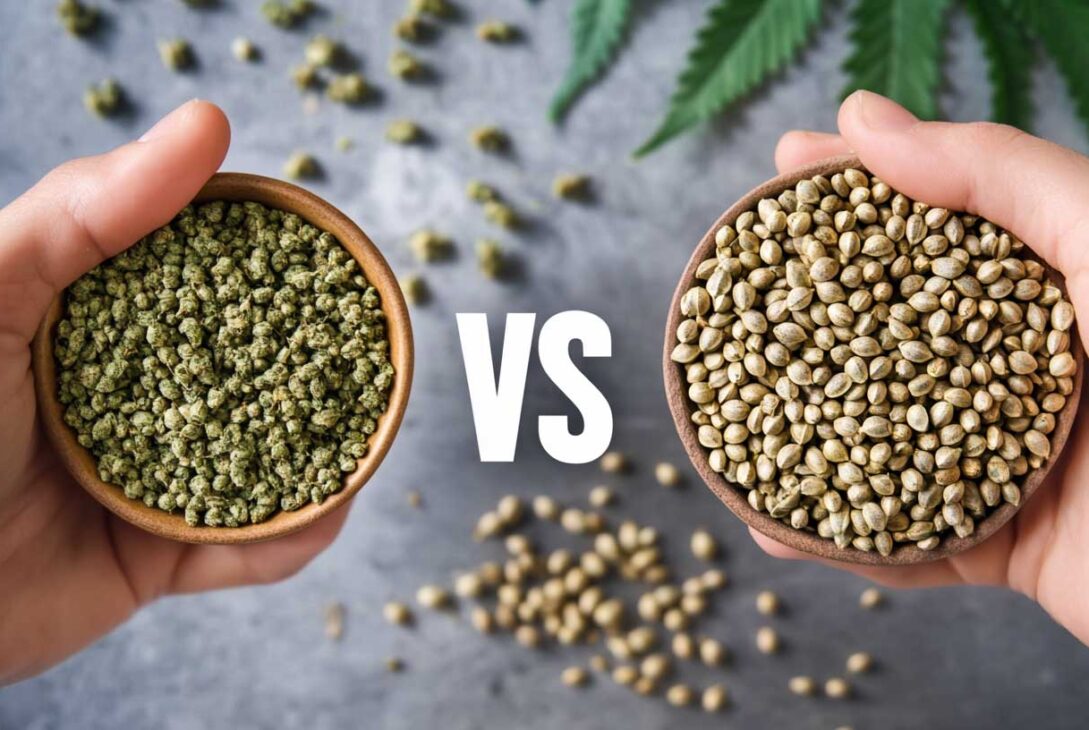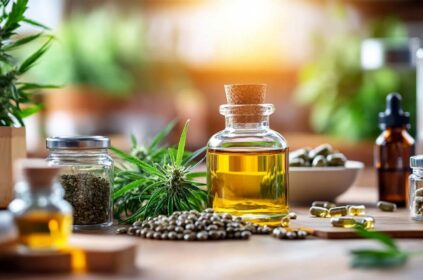Understanding the Differences Between Hemp and Marijuana: A Comprehensive Guide
Introduction
In the unfolding story of the cannabis industry, two terms dominate the conversation: “hemp” and “marijuana.” While they stem from the same plant, Cannabis sativa, they have distinct identities that deserve recognition. This guide aims to unravel the complexities surrounding these two types of cannabis, focusing on their chemical makeup, legal frameworks, and real-world applications. Whether you’re curious about CBD products or keen to understand the legal status of cannabis, this article will provide you with meaningful insights.
Chemical Composition: The THC Content
At the heart of the differences between hemp and marijuana lies the chemical that defines their effects: THC (tetrahydrocannabinol). THC is the compound responsible for the psychoactive experience many associate with cannabis. Understanding its concentration is key to distinguishing the two.
- Hemp: By definition, hemp contains a THC concentration of 0.3% or less on a dry weight basis. This low concentration means hemp plants are rich in CBD (cannabidiol), offering wellness benefits without the high that comes from marijuana.
- Marijuana: In sharp contrast, marijuana is any cannabis plant with a THC content exceeding 0.3%. These plants are cultivated specifically for their potency, often showcasing THC levels that can reach 30%, resulting in pronounced psychoactive effects.
This fundamental difference in composition shapes the identity and use of each type.
Legal Differences
Navigating the legal landscape of hemp and marijuana in the United States can be challenging, especially since these regulations can change rapidly based on political climates.
- Hemp: The 2018 Farm Bill marked a pivotal moment for hemp, effectively legalizing its cultivation, processing, and sale across the U.S. With this legislation, hemp-derived products, including CBD, were removed from the list of controlled substances. This shift opened the floodgates for a booming industry, allowing businesses to sell hemp products both online and across state lines.
- Marijuana: Despite the growing acceptance and legalization of marijuana for medical and recreational purposes in various states, it retains a federal designation as a Schedule 1 substance. This means that, according to federal law, it is still considered illegal to grow, possess, or distribute marijuana, creating a complex legal environment for consumers and businesses alike.
Practical Uses and Market Impact
The applications of hemp and marijuana span a wide array of industries, leading to different impacts on the market.
Hemp Uses
The versatility of hemp is truly remarkable, with applications in several key sectors:
- Textiles and Fiber: Hemp’s strong fibers make it ideal for creating textiles, paper, and even biodegradable plastics. Its durability can be harnessed to develop construction materials, such as hempcrete—a sustainable alternative to traditional concrete.
- Wellness Products: The wellness industry has embraced hemp-derived CBD, promoting products like oils, tinctures, and topical creams. Many users report benefits such as relief from pain, anxiety reduction, and enhanced sleep quality.
- Food and Supplements: Hemp seeds are nutritious powerhouses, loaded with proteins, essential fatty acids, and other nutrients. They are often found in products like hemp milk, protein powders, and snacks. However, it’s important to note that hemp-derived CBD is not recognized as a food additive or supplement by the FDA.
Marijuana Uses
Marijuana primarily serves a different purpose:
- Recreational Use: For many, marijuana offers enjoyable psychoactive effects, leading to its use in various social settings.
- Medical Use: Medical marijuana is prescribed for conditions such as chronic pain, epilepsy, and nausea related to chemotherapy, reflecting its therapeutic potential. Depending on the state, medical marijuana access may vary, usually requiring a prescription and compliance with specific regulations.
Market Trends in the U.S.
The legalization of hemp has invigorated its market, spurring various trends recognized by consumers and businesses alike.
- CBD Market Growth: In recent years, the CBD market has exploded, largely attributed to consumer interest in its purported health benefits. From skincare to culinary innovations, the range of CBD products is continuously expanding.
- Regulatory Challenges: While products can now legally cross state lines, challenges persist regarding quality control and accurate labeling. Consumers are advised to look for third-party lab testing to ensure product safety and potency.
- Innovation and Research: The evolving legal landscape has paved the way for further research into the potential benefits and applications of both hemp and marijuana. This innovation has led to better extraction techniques, product formulations, and an increased understanding of cannabis therapeutics.
Conclusion
Understanding the distinctions between hemp and marijuana enables better decision-making in this nuanced market. Here are the key takeaways for you to consider:
- THC Content: Remember, hemp contains 0.3% or less THC; marijuana contains more than 0.3% THC.
- Legal Status: Hemp is federally legal, while marijuana remains illegal under federal law.
- Practical Uses: Hemp is utilized in textiles, wellness products, and food, while marijuana is favored for recreational and medical applications.
As you explore the world of hemp products, prioritize choices from reputable vendors who provide clear labeling and testing information. Staying informed is essential, as the cannabis landscape is continuously shifting. To make well-informed choices, refer to credible sources and engage with professionals if you plan to use cannabis for medical purposes.
By grasping these distinctions and keeping abreast of industry trends, you can embrace the full potential of hemp products while navigating the complexities of the cannabis market confidently.





















